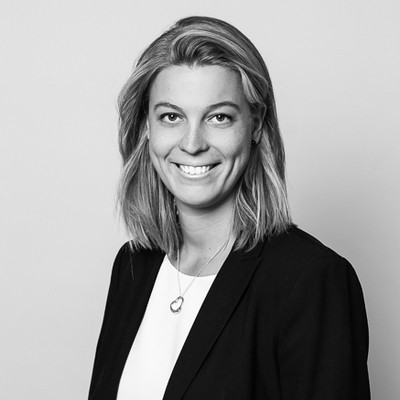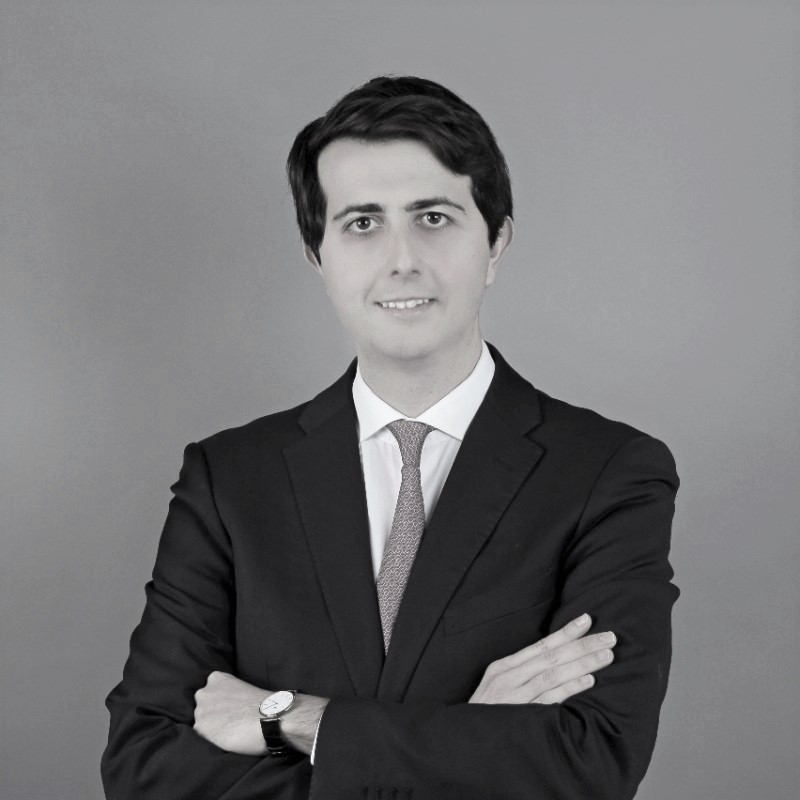La dimensione ESG attraverso gli occhi di Capucine Beslay e Edoardo Alonzo
______________________________________________________________________________
Nell’ambito dell’attribuzione del FIDA ESG rating, il Focus rappresenta uno spazio nel quale gli asset manager si raccontano e comunicano agli operatori del settore il loro approccio alla sostenibilità.
Questa raccolta di contenuti prosegue con l’intervista realizzata con Trusteam Finance, società di gestione indipendente creata nel 2001
Company

Capucine Beslay
Responsible of Extra-Financial Research
FIDA: What’s your level of vocation to sustainability issues and why?
CB: We have a very high level of integration on sustainability issues (ESG). For more than 10 years now we have decided to apply an extra-financial performance criterion, customer satisfaction, as the entry point of our investment process.
This is based on a strong conviction we have at Trusteam Finance: the most important asset in a company is the Customer. In an always more competitive and digital world, the Customer has taken the power. That is why we deeply believe that it is essential to invest in companies that have managed to put their customers at the core of their strategy.
As customers are increasingly paying attention to ESG issues, they are the right stakeholder to focus on to navigate in the markets between financial and extra-financial performance. In fact, to maintain scores high of customer satisfaction, a company need :
- Limited environmental impact (E)
- Engaged employees (S)
- Aligned governance (G)
EA: Thanks to its unique and proprietary process, 97% of Trusteam’s AUM are classified as SRI by the French government label and this makes Trusteam Finance as the Asset Management Company with the highest percentage level of SRI assets compared to its AUM (survey of FIR: Finance pour l’Investissement Responsable).
FIDA: Which institutions do you refer to, are involved in and how?
CB: It has been really inspiring in 2021 to work on impact by analyzing the relationship between the UN Sustainable Development Goals (SDGs) and our portfolios with the Impact Management Network (IMP). We have concluded that 11 out of 17 SDGs are linked to customer satisfaction. But we have a long tradition of involvement in many associations as we believe in co-construction and adaptation of our industry. For examples we have signed the UN PRI in 2014, we are involved in many working groups in France such as Finance for Tomorrow and Sustainable Investment Commission of the AFG (French Association of Asset Managers). We are also an active member of the Climate Action 100+ coalition and many more.

Edoardo Alonzo
Head of Business Development for Italy and Ticino
Sustainabilty themes
FIDA: In terms of sustainability, as interpreted in the light of the UN SDGs, which ESG issues do you consider most important in corporate management and which, in general, in investment policies?
CB: The very first criteria of our investment process is customer satisfaction. Many academic studies have shown that customer satisfaction has been the missing link between sustainability and financial performance. The expectations of customers, being the only source of revenue, on sustainability topics is increasing (especially since the beginning of the covid crisis): for instance, 90% of customers expect companies to reduce their C02 emissions, 86% that they defend civil rights and 90% that they promote diversity and inclusion. More than that, around 90% of customers assert that environmental issues are a great deal in their purchasing decision. (Salesforce survey : State of the Connected Customer).
EA: We could simply say that for us the impact comes from the customers. They are the ones that can make really change companies’ practices nowadays which was not the case until few years ago when the world was less digital, connected, informative and ultra-competitive.
We have noticed that an ever-increasing number of companies top managements have become aware of the importance to listen, understand and adapt to their customer needs.
Products
FIDA: With reference to the classification derived from SFDR how have you placed your funds and how do you intend to move soon?
EA: The bond funds are ranked SFDR 8 and the equity funds are ranked SFDR 9. We are also the first French Asset Management Company to have classified our funds as per the Impact Management Project (IMP). We consider that our equity funds are “impact positive”, and the bonds ones have a “do not harm” intention.
FIDA: How do you think the market will evolve?
CB: At Trusteam Finance we are deeply convinced that the power to act against Climate Change is in the hands of the customers but also in our own hands as investors! Several studies have demonstrated that acting through savings by replacing traditional funds with sustainable fund is between 21 and 27 times more impactful to reduce carbon emissions than eating less meat or less travelling by plane. The market will evolve in that way, not only thanks to regulation but also through customers!
FIDA: What impact do you think the new regulations have in terms of organisation and costs on your products?
CB: Having considered ESG matters in our investment process for 10 years, it has allowed us to understand the new regulations without too much difficulty. Indeed, as mentioned previously, all the work that we have done on impact classification and the difference we have made in terms of “intentionality” for equity and bonds portfolios a few years ago have allowed us to avoid huge changes in our organisation internally.
Investment Policies
FIDA: How do you integrate ESG issues into your investment policies?
CB: ESG issues are being considered along all the investment process. First through the customer satisfaction criteria where around 7,800 companies are screened. We have 40 providers of data and we have managed to sign exclusive partnerships for example with IPSOS and we have created the only multi-sectorial customer satisfaction study in Europe. And then, “ex-post” monitoring 30 extra-financial criteria like water intensity, recycled waste, women employed, reported every quarter. We also have a strong engagement policy. For example we are lead for 2 companies and support on 7 other within the Climate Action 100+ coalition. We integrate these issues in our voting policy (we vote actively to 100% of the General Assembly).
Trusteam has also recently decided to exclude completely fossil fuels from all our investments, which has contributed to lower the carbon intensity of our portfolios.
FIDA: Based on your experience, what do you consider to be the key elements of effective sustainability policies?
CB: What we have found through several internal surveys is that many sustainability policies are not in line with customers’ expectations. This means that the policy is either considered as not effective or simply greenwashing. Nowadays customers require proofs of companies’ engagement. Therefore the first thing to do for companies is to know their customers’ expectations and be able to innovate for answering them through sustainable products and services.
FIDA: Has the integration of ESG risks into portfolios had a positive impact on risk or overall performance and how?
EA: All of our strategies reflect a favorable risk/return trade-off. Trusteam has also its own private clients. This is how it all started, and this is one of the reasons why we tend to pay attention to the management of the volatility and the sustainability risks and the customer satisfaction angle works well for us as we believe that companies with satisfied clients are of good quality, financially robust benefiting from a high pricing power and at the same time focusing attention to ESG issues. Trusteam Optimum and Trusteam ROC are two good examples of being very low-carbon and have SRI scores much higher than their categories and benchmarks. These funds are in line with their performance and strategy objectives in 2021.
FIDA ha esteso la propria attività di rating del risparmio gestito nel campo della sostenibilità con un sistema di valutazione proprietario che ruota intorno a specifiche survey periodiche.
Le società di gestione e gli asset manager forniscono direttamente informazioni qualitative e quantitative finalizzate a far comprendere l’approccio alle tematiche ESG in maniera completa. I dati raccolti contribuiscono a definire il grado di sostenibilità previsto dal processo di investimento delle società di gestione e, combinati con le analisi dei portafogli dei fondi, quello dei prodotti gestiti.
Ad integrazione della valutazione quantitativa che culmina con l’attribuzione del FIDA ESG rating, il Focus rappresenta uno spazio nel quale le società si raccontano e sono stimolate dagli analisti a chiarire i temi centrali della vocazione alla sostenibilità.